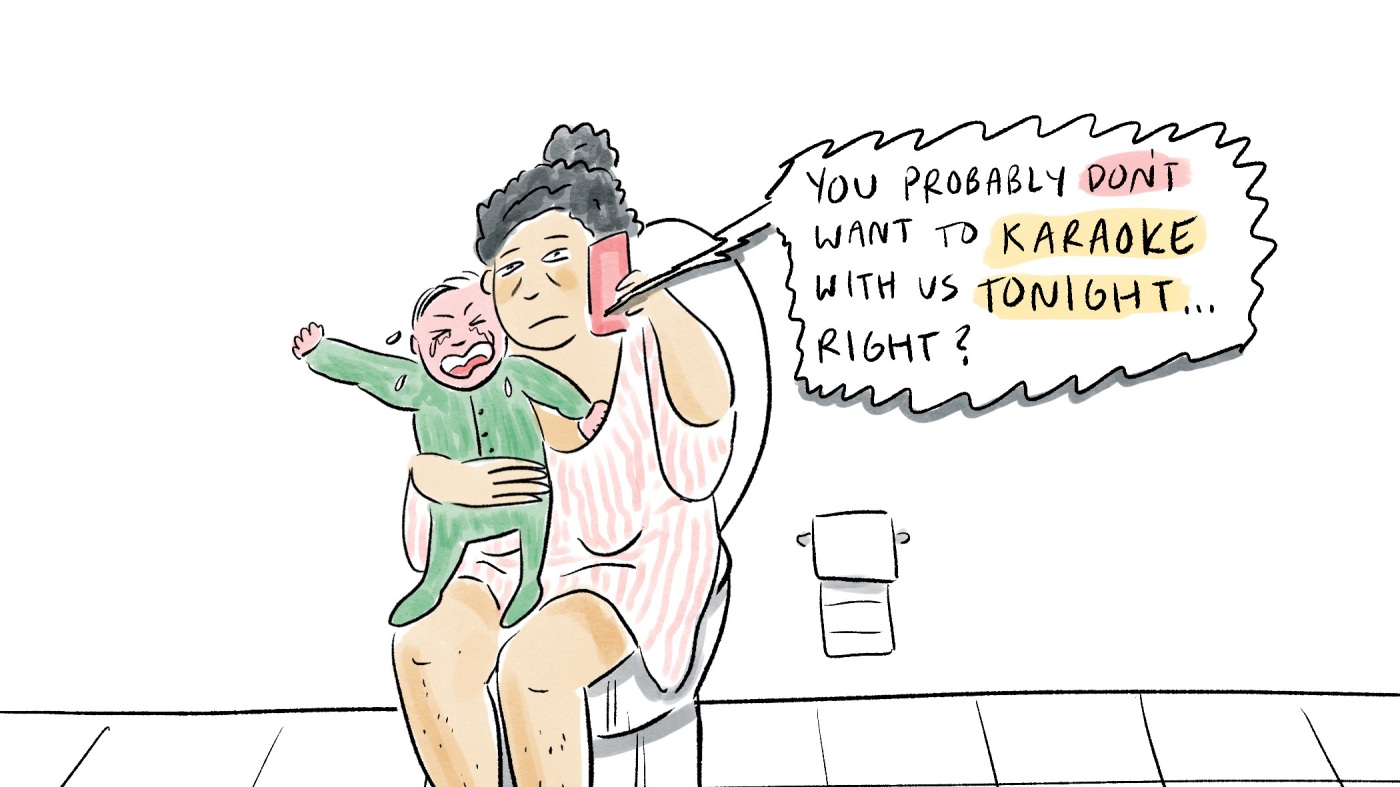The Shifting Landscape of Friendships Post-Parenthood
The arrival of children often brings a whirlwind of changes, and among the most significant is the alteration of friendships. This shift is a common experience, as both parents and child-free individuals grapple with the complexities of maintaining connections during this transformative phase. Delving into the reasons behind this change can illuminate pathways to preserving these valuable relationships.
The Unraveling of Friendships: Key Factors
The Power of Assumptions
Assumptions often lie at the heart of friendship dissolution after kids enter the picture. Parents may presume that their child-free friends are no longer interested in their new, child-centric lives. Conversely, child-free individuals might assume that parents are too preoccupied or disinterested in maintaining the friendship. These assumptions can erect barriers, leading to a gradual drift apart. Breaking down these assumptions requires open dialogue and a willingness to understand each other’s perspectives.
The Dynamics of Exclusion and Inclusion
Exclusion can be another significant factor in the fraying of friendships. Parents might unintentionally sideline child-free friends from parenting discussions, assuming they won’t relate. Similarly, child-free individuals might exclude parents from activities that aren’t child-friendly. This exclusion can foster feelings of isolation and strain the friendship. Inclusivity, on the other hand, can nurture a sense of belonging and strengthen the bond.
Shifting Priorities and Interests
The arrival of children often heralds a shift in priorities and interests. Parents may find their time and energy predominantly focused on their children, leaving little room for social activities. Child-free individuals, meanwhile, may continue with their previous lifestyles, leading to a mismatch in interests and availability. This disparity can make it challenging to find common ground and maintain the friendship. Finding shared activities and interests can help bridge this gap.
The Crucial Role of Communication
Effective communication is the lifeblood of any relationship, and friendships are no exception. When friends start having kids, there may be a lack of open and honest communication about the changes and challenges each person is facing. This lack of communication can breed misunderstandings, resentment, and ultimately, the dissolution of the friendship. Addressing concerns directly and openly can help fortify the bond and prevent unnecessary rifts.
The Emotional and Psychological Tide
The emotional and psychological impact of having children can also affect friendships. Parents may experience a rollercoaster of emotions, from joy and fulfillment to stress and exhaustion. These emotional shifts can make it difficult to maintain friendships, as parents may feel overwhelmed and unable to invest time and energy into social connections. Child-free individuals may also grapple with feelings of jealousy, loneliness, or resentment, further complicating the dynamics of the friendship. Acknowledging and navigating these emotions can help sustain the friendship.
The Ripple Effect of Parental Influence
Parents significantly influence their children’s friendships, which can also impact their own social connections. A study published in the Journal of Family Psychology underscores that parents are a major factor in friendship breakups among children. This dynamic can extend into adulthood, as parents may inadvertently shape their children’s social circles, affecting their own friendships. Being mindful of this influence can help parents navigate these complexities.
Navigating the New Terrain: Strategies for Preservation
The Power of Open Communication
One of the most potent strategies for maintaining friendships after kids arrive is open and honest communication. Both parents and child-free individuals should express their feelings and concerns directly. This can help preempt misunderstandings and build a stronger foundation for the friendship. Regular check-ins and open conversations can keep the lines of communication clear and strong.
The Art of Inclusive Activities
Including friends in activities, regardless of their parenting status, can help maintain connections. Parents can invite child-free friends to join them in child-friendly activities, while child-free individuals can suggest activities that accommodate both lifestyles. This inclusivity can foster a sense of belonging and strengthen the bond between friends. Planning activities that cater to everyone’s interests and availability can go a long way in preserving the friendship.
The Need for Adaptation and Flexibility
Adapting to the changes that come with parenthood is crucial for maintaining friendships. Both parents and child-free individuals should be flexible and understanding of each other’s needs and limitations. This adaptability can help bridge the gap and keep the friendship alive. Being open to changes in plans and understanding each other’s constraints can help maintain the friendship.
The Value of Building New Connections
Building new connections with other parents or child-free individuals can also help maintain existing friendships. Joining parenting groups, attending social events, or participating in shared interests can provide a support network and enrich the friendship. These new connections can offer fresh perspectives and strengthen existing bonds.
The Importance of Nurturing Emotional Depth
Friendships, like any other relationship, require nurturing and emotional depth. Investing time and effort into the friendship, even in small ways, can make a significant difference. This emotional investment can help sustain the bond and ensure that the friendship remains strong despite the challenges. Regularly expressing appreciation and support can deepen the emotional connection.
The Enduring Value of Friendship
Friendships are a treasure, offering emotional support, companionship, and a sense of belonging. While the arrival of children can present challenges, it is possible to maintain and strengthen these connections through open communication, inclusivity, adaptability, and emotional depth. By understanding the reasons behind the dissolution of friendships and implementing effective strategies, both parents and child-free individuals can navigate this transformative life stage and preserve their cherished bonds. The enduring value of friendship lies in its ability to adapt and evolve, much like the individuals within it. By embracing change and fostering understanding, friendships can withstand the test of time and the trials of parenthood.

